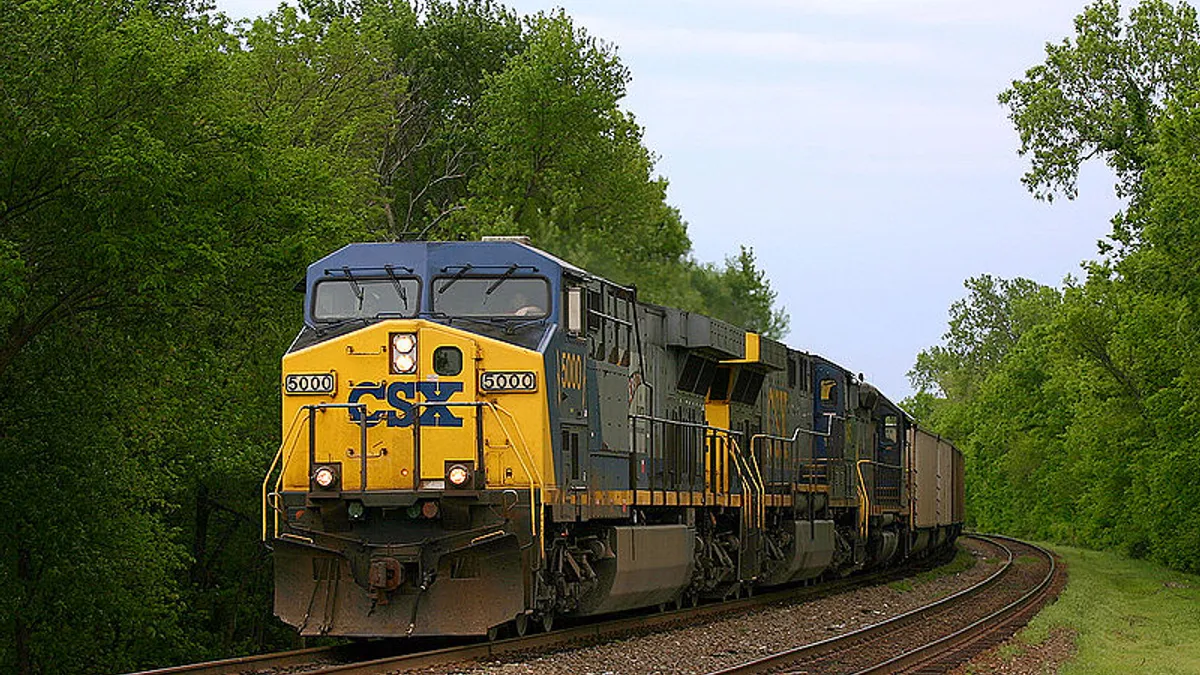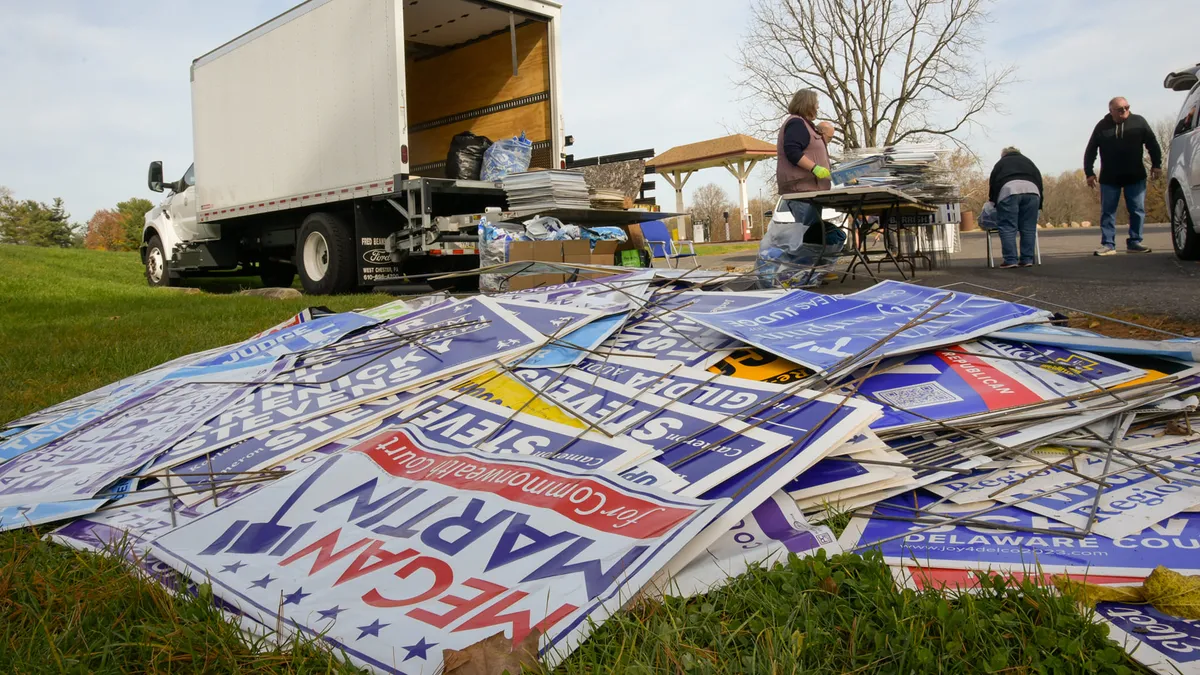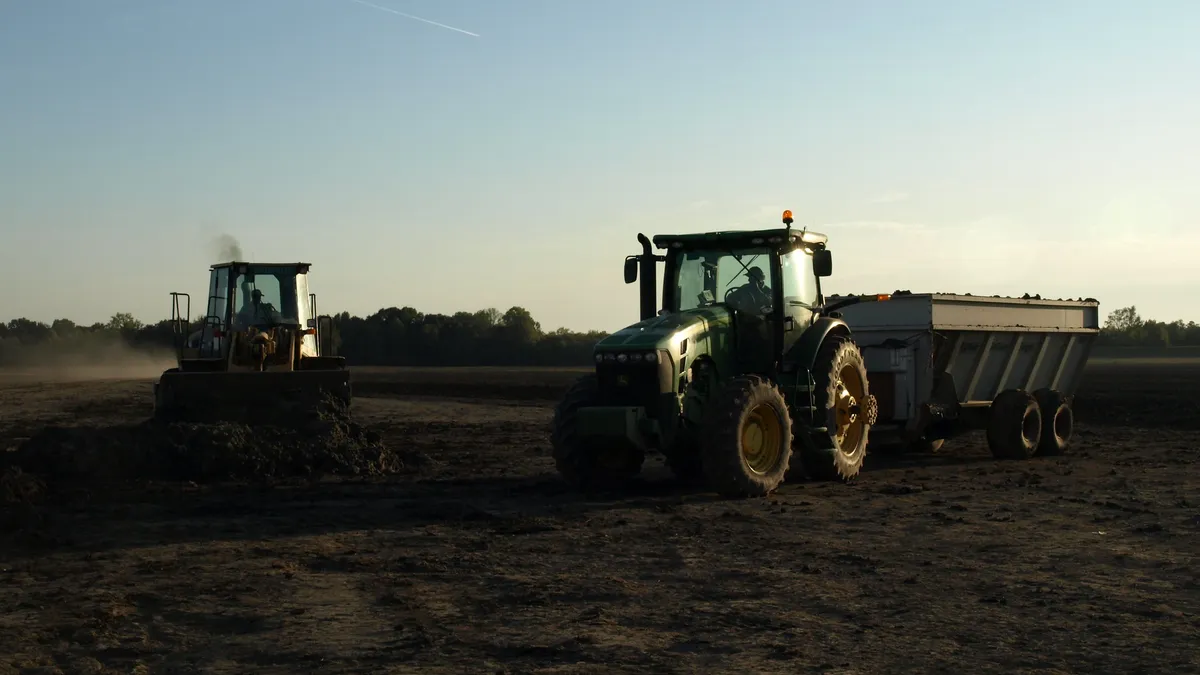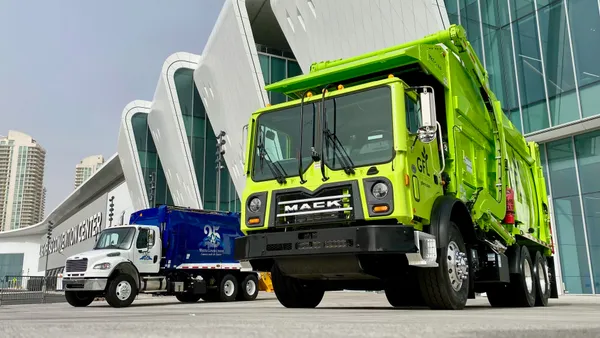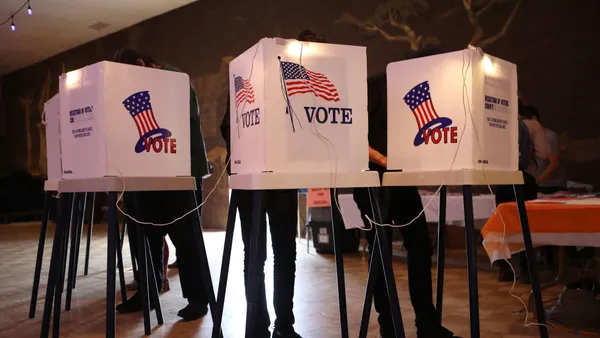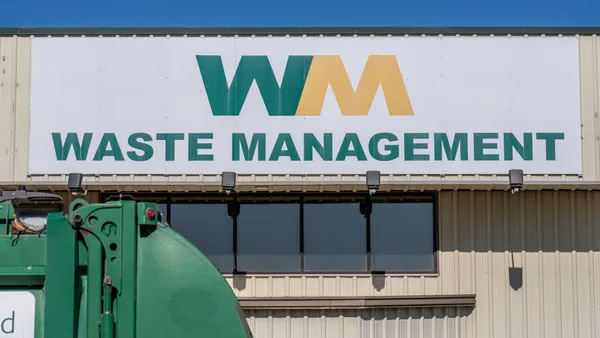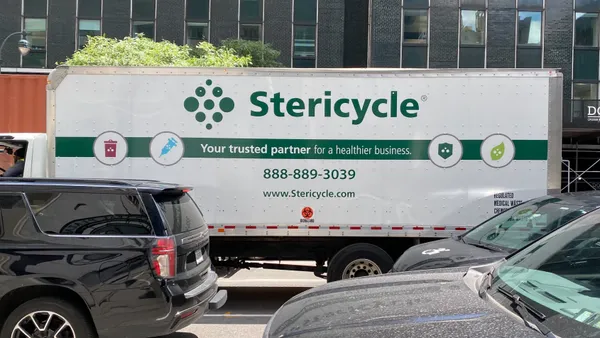UPDATE: The Seneca County Board of Supervisors has voted 14-0 to spend $100,000 on hiring a law firm to assist in opposing the NYC trash train proposal.
The hired firm, Knauf Shaw of Rochester, will work with Seneca County to stop the proposal that would transport nearly 2,500 tons of garbage daily by train from New York City to the Seneca Mills Landfill.
The board also unanimously voted to put out for RFPs related to surface-water testing in the proximity of the landfill, according to Finger Lakes Times.
Dive Brief:
- About 100 residents living near Seneca Mills Landfill in New York objected strongly at a meeting this week to a trash train proposal that would transport nearly 2,500 tons of garbage daily by train from New York City to the landfill. A major concern was if the plan could open the flood gates for other municipalities to ship garbage to the site. A site plan, which includes rail siding, is being used by Finger Lakes Railway and the landfill to justify handling agricultural product off-loading and possibly the trash trains.
- The proposed "train trash transport" deal triggered questions from residents on whether they can vote on the landfill permit extension vs trash trains; whether the site plan for the rail siding requires revision and another review; as well as questions about even more odors than what residents say already exist. A citizen’s advisory committee will be launched to address these and other questions, according to Seneca Falls Supervisor Greg Lazzaro.
- The proposed $3.3 billion contract between New York and Seneca Meadows is still being reviewed by New York City’s legal and financial departments.
Dive Insight:
There were community objections to the trash by train concept from before the tentative agreement between New York City Department of Sanitation and Seneca Meadows Landfill, which have not waivered.
"How can they think of taking trash from New York City for 20 to 30 years when the permits expire well before that time?" community opposition co-organizer Barbara Reese asked.
Finger Lakes Railway President Michael Smith explained the railway is instrumental to the region’s economic strength but questioned its proximity to the landfill, implying a main interest is capitalizing on trash from downstate.
"We’re tired of the trash. The railroad is secondary," said Larraine Mahoney, co-organizer of Monday’s public meeting on the trash by rail concept.
The opposition was expressed in a letter to the state Department of Environmental Conservation from Sen. Michael Nozzolio, and Assemblymen Brian Kolb and Phil Palmesano.
"There has been very little transparency or public discussion on this project and there is no real opportunity for the people most impacted in our legislative districts to ask questions or voice their opinion on this contract," they wrote.
The letter added that as the state legislators representing the Finger Lakes region, "we are requesting that you take the steps necessary to halt any further action on this project."


